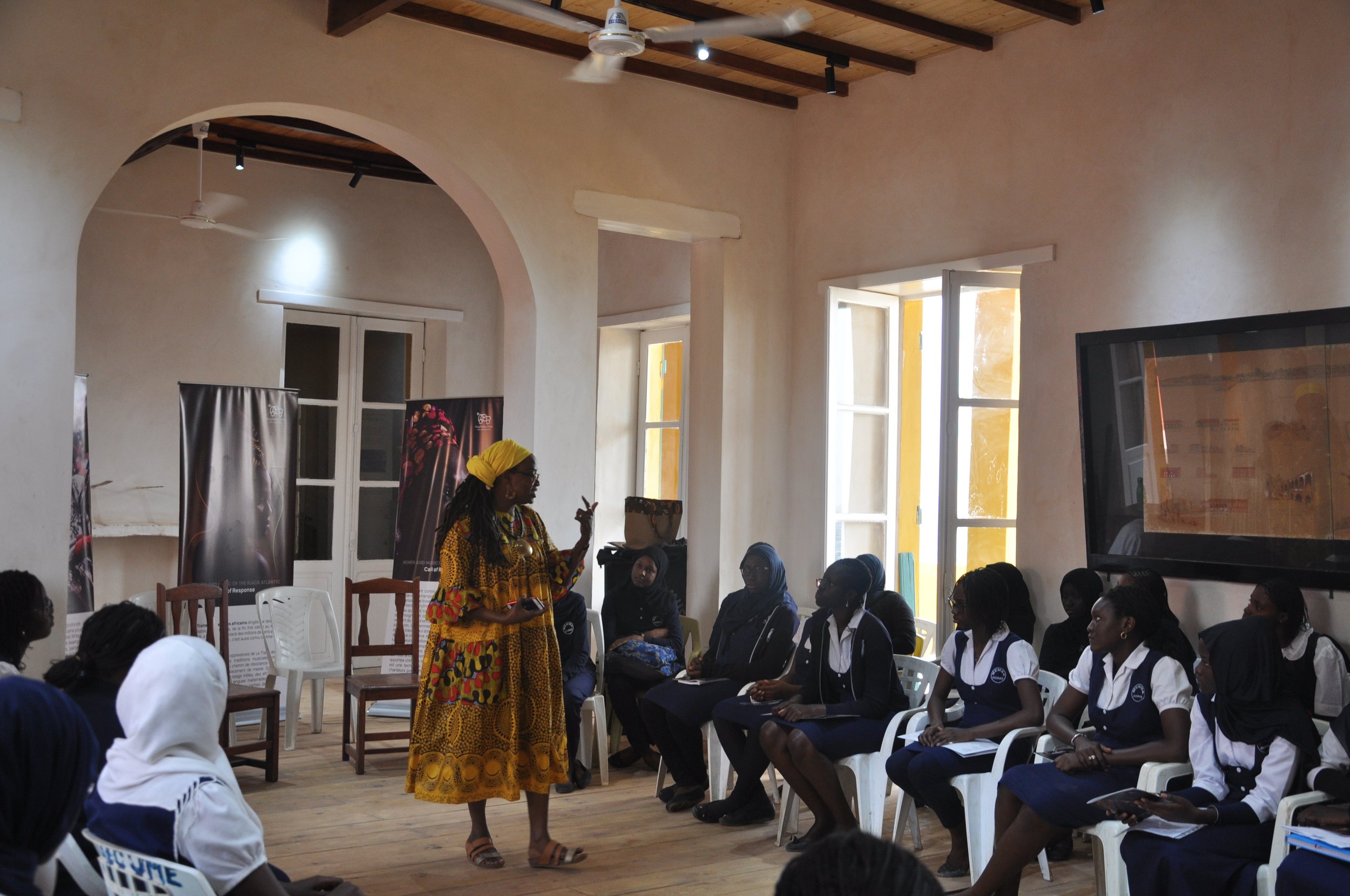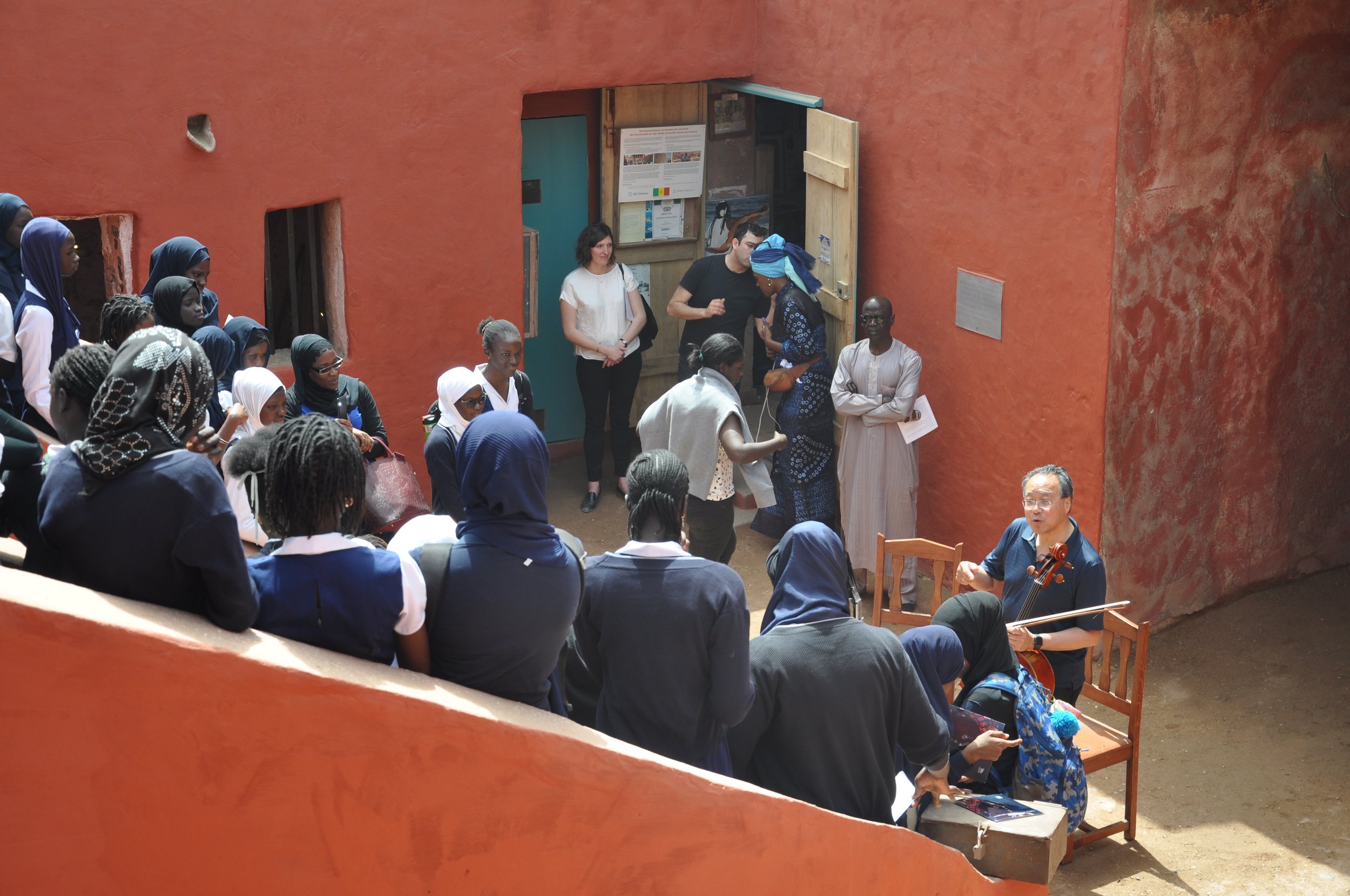Revitalizing Maison Des Esclaves
Project Objectives
As a result of the needs assessment, the Coalition received significant funding from the Ford Foundation and the Senegalese Ministry of Culture and Communication to facilitate the three-year revitalization project at Maison des Esclaves. The Coalition is working closely with site staff, local stakeholders and consultants to support Maison des Esclaves’ development into a dynamic site for learning and a catalyst for dialogue on slavery. Following are the core components of the revitalization plan:
Expand the museum’s areas for engaging visitors.
A central challenge for Maison des Esclaves is its lack of adequate space for visitor and group arrival, exhibits, public programming and offices. To address this need, the Ministry of Culture of Senegal has offered an adjacent building, Maison Albis. The additional space will improve visitor flow and experience, educational quality and visitation capacity. Maison des Esclaves staff members envision Maison Albis ultimately housing a library and offices.
Refine content to reflect today’s understanding of the house and the transatlantic slave trade.
The Coalition is partnering with Maison des Esclaves staff and other experts to ensure that the museum’s permanent exhibition is updated based on recent research. Since the museum’s founding, its programs have presented a composite “sketch” of elements common at many West African slave trade holding facilities – rather than a more precise site-based interpretation. For example, the Door of No Return is a central element of the site and seeing it is the priority for many visitors. Tour guides have long described slaves lining the halls to the door awaiting departure - yet, while the door may have been used as a slave exit, it is also possible that slaves walked from the street-side entrance and to a nearby docking area. The updated exhibition content is likely to present the door as a metaphor of slavery while also reflecting that its historical use is unclear. Replace dated exhibitions to align with refocused content. At present, exhibitions at Maison des Esclaves do not incorporate the latest research and are inaccessible to many visitors. Certain exhibits date to the 1990s and relate to broader narratives of the slave trade. The museum also contains many artifacts – such as documents and maps – as well as reproduction chains and shackles – that speak to the site’s rich history, but are currently unidentified or displayed where visitors cannot see them. During the revitalization, the Coalition is assisting in updating these exhibitions and offering guidance to Maison des Esclaves staff in using Sites of Conscience Dialogue Methodology to interpret the difficult and emotionally charged nature of the exhibitions. Trained tour guides can help connect scholarship, site content and visitors’ personal experiences to foster individual and collective learning and to inspire sustained, “action-oriented” dialogue on contemporary issues to help visitors understand how they can prevent human rights abuses. In October 2018, a prototype exhibit was installed. The final exhibit will be launched in early 2022.
Transform the site into a global hub for dialogue on slavery and its contemporary legacies.
The Coalition is unique in its ability to promote discourse on historical and contemporary struggles for human rights at places of memory. For this project, the Coalition is fostering collaboration with its African Regional Sites of Conscience Network and members in other regions that focus on slavery. This regional support enables Maison des Esclaves to incorporate best practices in interpreting slavery while integrating the site into the broader landscape of slavery sites, positioning it to become a vibrant center for public engagement and a repository of knowledge on the global slave trade.
Conduct necessary restoration and repairs to maintain Maison des Esclaves and Maison Albis.
Maison des Esclaves is in good physical condition. However, there are immediate and near-term concerns that are being addressed to maintain a safe, stable building for visitors. Maison Albis, a critical component of this project, is undergoing significant repair work to serve as a support space for the mission of Maison des Esclaves. The Coalition is working with a local architect and contractors to conduct necessary repairs to both buildings.


